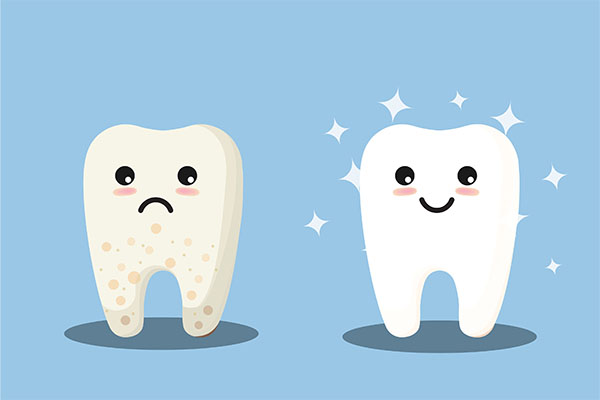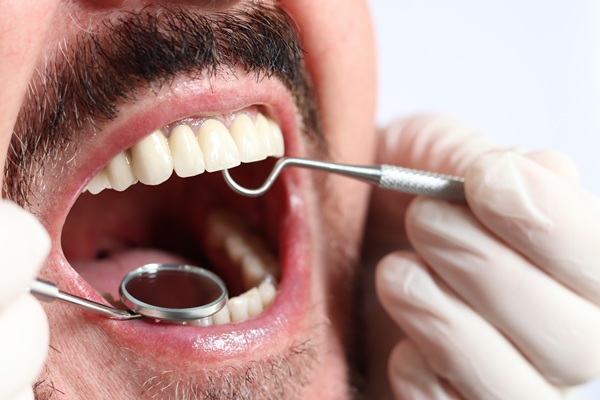 Clenching and grinding the teeth, also known as bruxism, can wear them down and cause jaw and ear pain. General dentists can help patients with bruxism avoid pain and discomfort. This blog will review the causes, symptoms, and treatments for teeth grinding.
Clenching and grinding the teeth, also known as bruxism, can wear them down and cause jaw and ear pain. General dentists can help patients with bruxism avoid pain and discomfort. This blog will review the causes, symptoms, and treatments for teeth grinding.
How a General Dentist Treats Bruxism
Understanding bruxism
It is common for people to be unaware they clench or grind their teeth until they notice the symptoms, such as a tender jaw, ear pain, facial pain, sensitive teeth, headaches, or chips and cracks in the teeth. The temporomandibular joint, or TMJ, may even pop or click while chewing. Bruxism can also damage the bone underneath the teeth. A general dentist may detect these harder-to-catch symptoms through inspection and dental X-rays during a routine oral exam.
According to Johns Hopkins Medicine, stress and anxiety are two of the most common causes of teeth grinding. Anger, frustration, and certain medications can also cause bruxism. Dental treatments for bruxism vary depending on the cause.
How to stop grinding teeth
Use a mouthguard
A general dentist will recommend a mouthguard for a patient who grinds their teeth at night. While mouthguards are available at the drugstore, generic mouthguards can cause problems due to improper fit. They can be too long, high, and thin, making them uncomfortable and prone to breaking.
A custom-made mouthguard does not have the issues presented by over-the-counter mouthguards. The general dentist will fit it into the patient’s mouth for optimal comfort. Custom mouthguards are also made of a more durable material, making them a good choice for athletes and those who grind their teeth intensely.
Get dental splints
If the jaw or teeth are slightly misaligned and causing bruxism, a general dentist may recommend a dental splint to reposition the problem areas. Grinding can be reduced through proper alignment. Similar to custom mouthguards, splints are tailor-made for each patient.
Consider muscle relaxers or other medication
Muscle relaxers can help relieve bruxism, especially when taken before bedtime for a case of sleep bruxism. However, this is not typically used as a long-term treatment; muscle relaxants relieve discomfort while the patient waits or gets used to a mouthguard or splint.
Other medications may also help. For example, if an anxiety disorder is the underlying cause of bruxism, a general dentist may recommend that the patient see a psychiatrist about going on medication. Finding the right antidepressant or anti-anxiety medication can help with the symptoms of bruxism and the underlying mental health condition.
Explore other treatments for bruxism
Sometimes, bruxism is caused by sleep apnea or another medical condition. A general dentist will refer the patient to the correct doctor or specialist in these cases. A mouthguard or splint may be safe to use depending on the condition; make sure to inform the dentist of any other medical conditions when discussing bruxism treatments.
Book an appointment with a general dentist
Teeth grinding can cause pain, discomfort, and oral health problems. There is relief. Call our dental office to learn more about the various treatments for bruxism.
Request an appointment or call Founders Dental at 720-893-7362 for an appointment in our Castle Rock office.
Recent Posts
Visiting the dentist can be an anxiety-inducing event for many people. The biggest reason for this is that general dentistry appointments are often associated with painful procedures and a perceived loss of control as you lay back and let the dentist and dental assistant perform their duties. It might also be possible that you are…
General dentists can perform dozens of different procedures, so they may have a long list of offered services. A general dentist focuses on the prevention (and fast restoration) of oral health issues. However, they may also provide more extensive procedures, such as teeth replacement, when necessary.Some general dentistry services are more common than others. Specifically,…
Be sure to see a general dentist before a toothache or other dental emergency. It benefits you to be proactive with your dental care and take advantage of all the ways a general dentist can help protect your teeth and overall oral health. A dentist does more than just treat dental problems. Preventive dentistry is…


